Post
A catch
Save a catch to start your fishing logbook. You will be able to to share it with the community if yo want!
A fishing trip
Post an ad to go fishing with other fishermen
Save a catch to start your fishing logbook. You will be able to to share it with the community if yo want!
Post an ad to go fishing with other fishermen
Share a thought, a question with the community
My favorite cities
×Join our 1281 fishermen and our 8 cofishermen in Manor-House in Greater London. The fishing forecast is currently 3.7. The most caught fishes here are the tench fish, the three spined stickleback, the wels catfish and the pike fish. Come try the most famous fishing techniques like the scrapped fishing, deep-sea fishing, fishing techniques for sea bream or lead techniques for soft lures to fish bass.
Our fishing forecast of Manor House indicates the best time to go fishing in this city.
The Tench fish
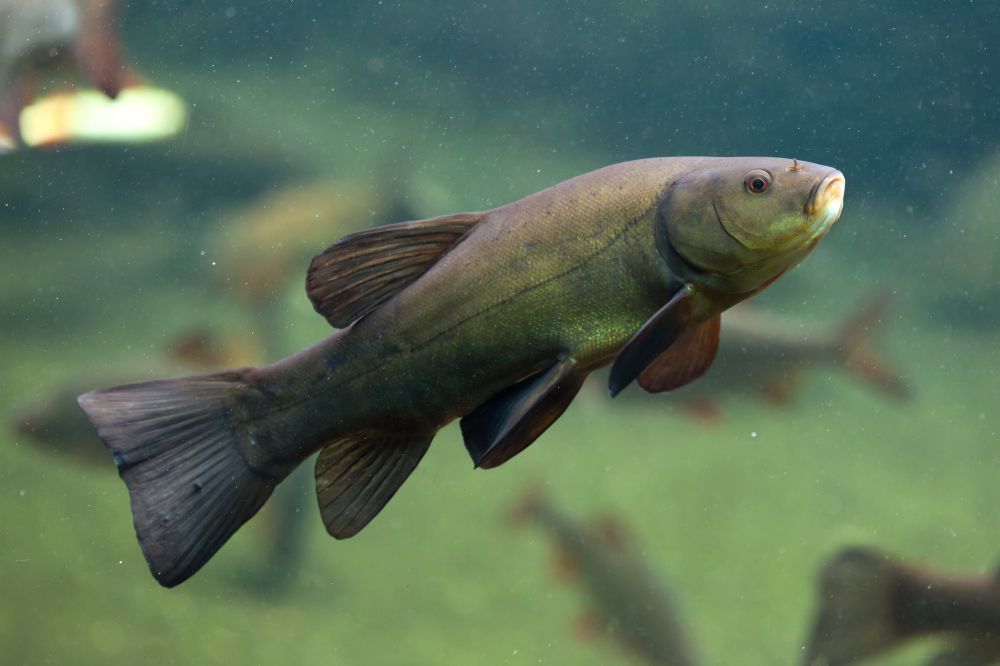
The Tench fish belongs to the Cyprinidae family. It rarely exceeds a length of 50 cm for a weight of 2 kg (maximum 70 cm for 8 kg). He can live up to 15 years. It breeds from May to August. Fertility is 300,000 to 800,000 eggs. It can be fished all year round. The Tench is a fish with a stocky body and compressed laterally. Its head is triangular with a small red-orange eye and a relatively long snout. Its mouth is terminal, small with thick lips and a well-developed barbell at each corner. Its characteristic caudal pedicle is rounded and short. Its skin is thick and viscous. Its scales are very small and covered with a thick layer of mucus. All fins are rounded. The caudal fin has 19 rays. The overall coloring is olive green (sometimes dark green or even almost black) with golden reflections on the ventral side. From the age of two years, males can be distinguished from females: they have ventral fins that reach the anus and the second ray of these fins becomes stronger than the others. It is a groundfish, rather shy, that can be found in small groups of maximum 4 individuals.
The Tench fish is a famous fish you can catch in Manor House.The Three Spined Stickleback
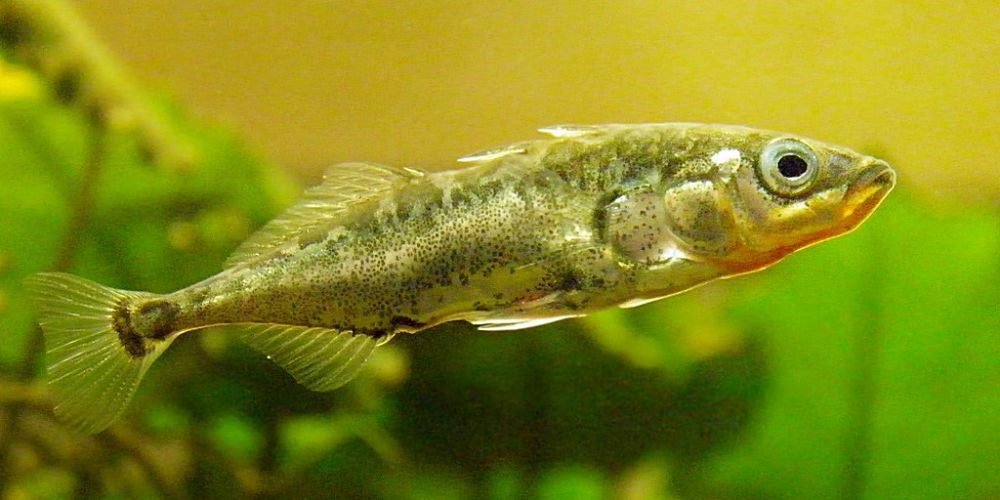
The three spined stickleback belongs to the Gasterosteidae family. The usual size of the three-spined stickleback is 4 to 5 cm for females, with males being a little smaller, about 3 to 4 cm. The life span of the three-spined stickleback varies from 3 to 5 years in natural environments and up to 8 years in captivity. Spawning season extends from March to June. Fertility is 200 to 400 eggs. It is fished from June to March. The three-spined stickleback is a tiny fish with a tapered, laterally compressed body. Its head is quite small, with fairly large eyes, and ends in a narrow mouth that is slightly oriented forward and upwards. The caudal peduncle of the three-spined stickleback is very narrow with a slightly indented caudal fin. The long dorsal fin is set far back, plumbing the anal fin. The dorsal fin of the three-spined stickleback is preceded by three spines, two long and one short, placed on the back of the fish. A curved spine also precedes the implantation of the anal fin. The pelvic fins are replaced by two thorns. The color of this fish is greenish brown for the back, with metallic reflections, silvery for the sides and whitish for the belly. Along the lateral line of the three-spined stickleback, there are no scales but bone plates called "badges", a kind of natural shielding that accompanies the thorny defenses of this fish.
The Three Spined Stickleback is a famous fish you can catch in Manor House.The Wels Catfish
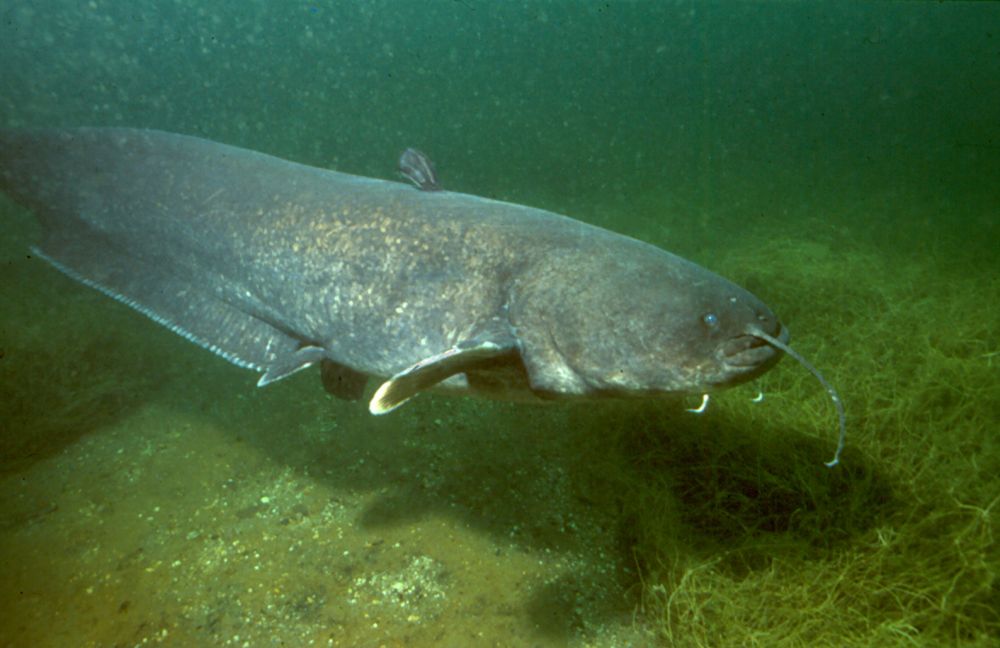
The Wels Catfish belongs to the Siluridae family. The usual size is 1 m for 10 kg but it can reach a maximum of about 5 m for a weight of about 300 kg. The maximum observed longevity is 60 years. It breeds from May to June. The female lays 20,000 to 30,000 eggs per kg of weight. It can be fished all year round. This massive species has a flat, broad head with small eyes and three pairs of barbells. Two pairs not movable on the lower jaw, one longer and movable on the upper jaw. The trunk represents about 1/3 of the animal and has the paired radiated fins and a small rudimentary dorsal fin. The belly is lighter. The posterior part of the body is laterally flattened and has a long anal fin. The tail ends in a homoceric fan-shaped caudal fin. The livery is variable and fluctuates from olive green to grey, both plain and with light spots. The skin is viscous and flake-free. The wels catfish has many small teeth.
The Wels Catfish is a famous fish you can catch in Manor House.The Pike Fish
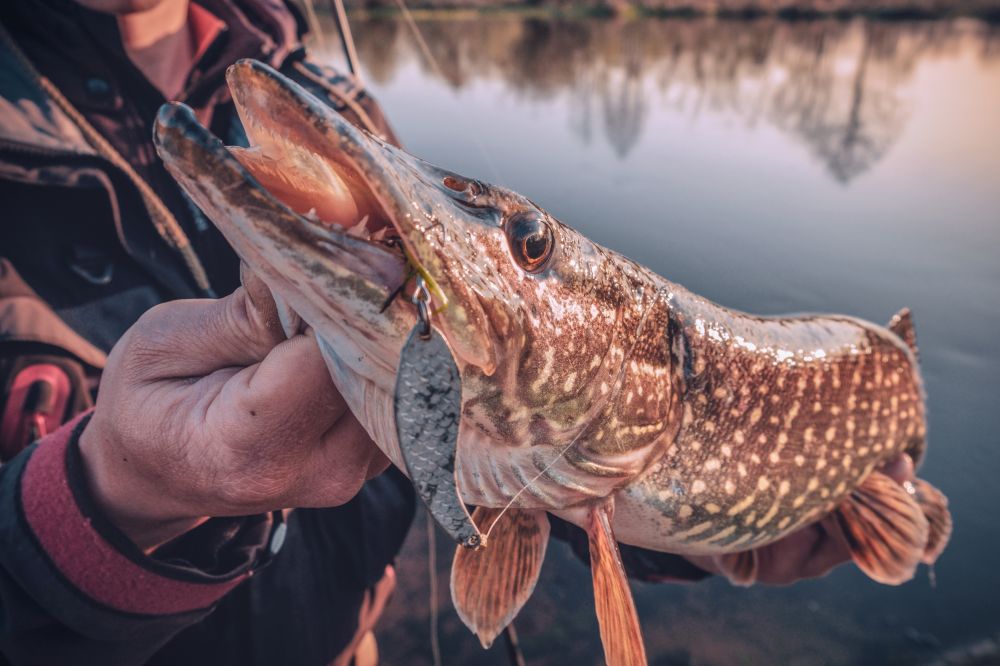
The Pike fish belongs to the Esocidae family. Pike can reach 1.30 m and weigh 25 kg. The current capture size is 50 cm for a weight of 1 kg. Females are commonly larger than males. The longevity is 10 to 14 years for males and 20 years (maximum 30 years) for females. Breeding takes place from February to May. The female lays 15,000 to 45,000 eggs per kg of weight. It is caught from June to December. This species is identifiable by its shape as a rifle bullet. The odd fins are at the back of the animal (allowing a sprinter propulsion). The characteristic head looks like a duck's beak. The mandible is longer than the upper jaw. The color varies from light green to black depending on the dominant color of the colonized habitats. The sides are lighter with darker transverse bands. During growth, the oblique stripes of young people give way to horizontal lines.
The Pike Fish is a famous fish you can catch in Manor House.The Goldfish
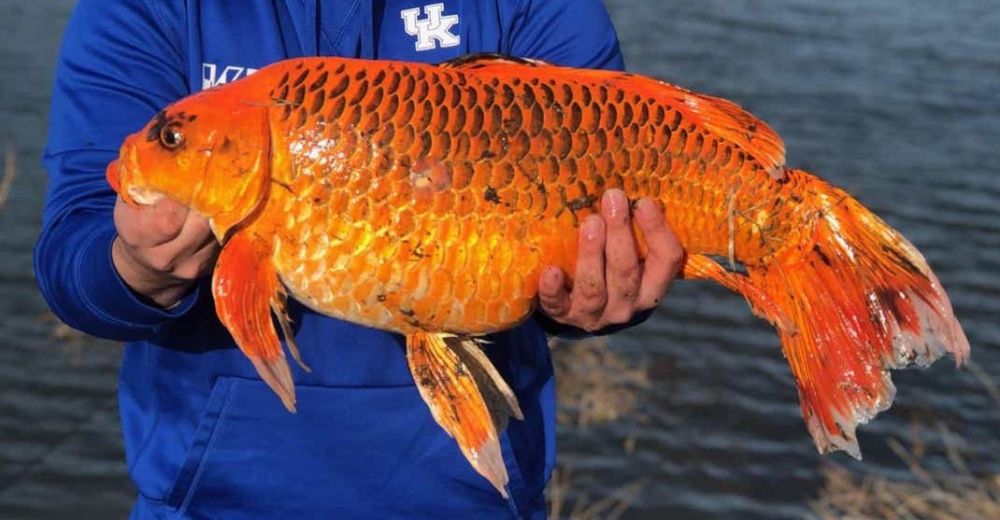
The Goldfish belongs to the Cyprinidae family. This fish can reach 60 cm and live up to 15 years. It breeds in spring for an average of 1000 eggs. In the wild, the species Carassius Auratus or Goldfish has an elongated, laterally compressed and slightly high body. The small triangular head is free of scales and barbells. The dorsal fin, concave or straight, begins at the top of the body and ends at the caudal peduncle. The caudal fin, larger and more indented than that of the Crucian carp, has 17 to 20 soft rays. The ventral and pectoral fins and the anal fin are small and thin. The body is covered with small scales. There are 26 to 31 scales on the lateral line. The colors of the Goldfish vary greatly with the environment in which it evolves, from yellowish to bright golden and bronze. Its back is generally darker and his belly lighter. The main distinctive features of the ornamental shape are its flamboyant red color and its many morphological shapes and aberrations.
The Goldfish is a famous fish you can catch in Manor House.Our fishing forecast of Manor House indicates the best time to go fishing in this city.
Our fishing forecast of Manor House indicates the best time to go fishing in this city.
Our fishing forecast of Manor House indicates the best time to go fishing in this city.
